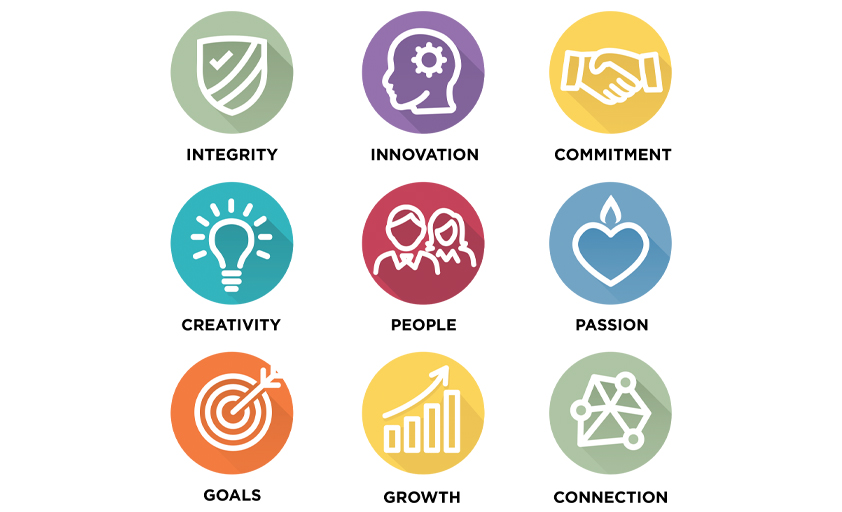Core values are those things that are most important to you in the way you live and work. They should determine your priorities and are likely the measure that you use to determine if your life is going well. When the things that you do and the way you behave match your values, you probably feel satisfied and content. When these don’t align with your core values, things will often feel off or wrong.
Understanding what your core values are can result in making your life easier and better. You can make plans and decisions that honor them resulting in a better, more satisfying life. They will help you answer questions like:
- What job should I take?
- Should I start my own business?
- Should I have children?
- Should I relocate?
So, how do you know what your core values are? Take these steps to determine yours:
- Write down the values that most resonate with you – Pick from the list below of common personal values and add any that are missing.
- Personal growth
- Religion/spirituality
- Achievement of goals/recognition/rewards
- Caring for others
- Integrity
- Good health
- Relationships
- Wealth
- Trust
- Wisdom
- Truth
- Tradition
- Open-mindedness
- Status
- Stability
- Sobriety
- Simplicity
- Safety – freedom from risk or danger
- Resourcefulness
- Dependability
- Success
- Influence over people, places, things
- Perfection
- Peace/Tranquility
- Loyalty
- Knowledge
- Generosity
- Independence
- Honesty
- Harmony
- Happiness
- Fun
- Freedom
- Financial well-being
- Family
- Respect
- Fairness
- Excellence – meeting high standards
- Effectiveness
- Discipline
- Decisiveness
- Creativity
- Courage
- Risk-taking
- Cooperation
- Competition
- Compassion
- Communication
- Commitment
- Learning
- Personal development
- Change
- Humility
- Beauty
- Service to others
- Authority
- Adventure
- Note the values of people that you admire – Generally, when we admire a quality in someone else, it’s because it’s something we value ourselves. Write down five to seven people you admire who are role models or valued connections for you. Try to identify their values and add them to your list.
- Consider your experiences – Think back to key moments in your life (good and difficult). Consider what these experiences reveal about your core values. For example, maybe a difficult experience has taught you that empathy is important to you.
- Categorize your values – Now that you have created a master list of values, review it and try to group the values into categories. Perhaps you have written down compassion, service to others and generosity. These values are all related and could be put in one category. Then, choose a word that identifies the central theme.
- Identify your top five core values – Rank your top values in order of importance. The number of core values can vary, but I generally recommend about five.
Post Views: 615



















